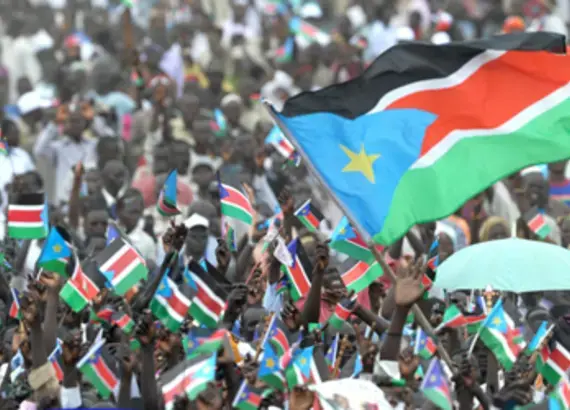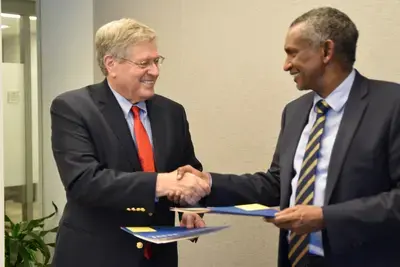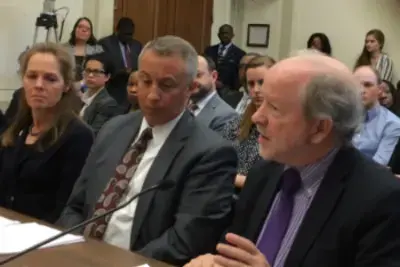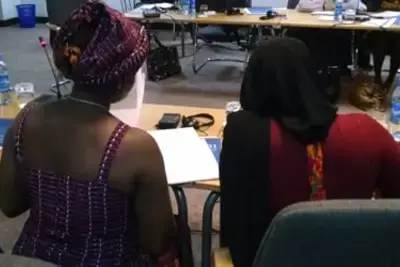
Success Story
Citizens Seek Role in South Sudan's Constitution
Men and women of South Sudan believe they are an essential part of the country's constitution-making process, according to a new NDI report based on a series of focus groups held around the country.
“We do not want the big government people to do it alone,” said one participant, reflecting a response shared by a broad segment of those taking part in the study.
Since gaining independence on July 9, 2011, South Sudan has been governed by a transitional constitution as work proceeds on developing a permanent one. To gauge perceptions of this process, NDI – in collaboration with faculty from the University of Juba – conducted its 13th round of focus group research last November. The findings, based on 46 focus groups held in all 10 states of South Sudan, led to the latest report, From a Transitional to a Permanent Constitution: Views of Men and Women in South Sudan on Constitution-Making.
Most participants said they preferred that a referendum be held on whether to adopt the constitution, a process they said offered the people of South Sudan a greater voice than having the government decide.
Participants also expressed a desire for a political system that embraces multiple political parties and allows space for opposition, which they believed would produce the best ideas for governing the country. Participants strongly objected to a system that would allow a president to appoint members of parliament and unilaterally remove a state governor – expressing a desire to have checks on executive authority. They also strongly favored presidential term limits.
The report highlights public opinion toward traditional, local leaders such as village chiefs. A key component of the current legal system and governance structure, chiefs were believed by many respondents to deserve constitutional recognition for that role. There was support for giving them constitutional authority over cultural and small crime issues, although participants were divided over whether these local authorities should be involved in higher levels of government.
Participants strongly endorsed South Sudan’s 25 percent quota for representation of women in the executive and legislative branches, with some calling for that percentage to be higher. Marriage was viewed as a constitutional issue by many participants, who say the permanent constitution should address the problem of soaring dowries, guarantee freedom of choice in marriages and set a minimum age for marriage.
The study was conducted in rural, urban and peri-urban locations, and features the perceptions and opinions of 600 men and women from varying ethnicities, age groups and education levels on key issues to be addressed in the permanent constitution. With support from the United States Agency for International Development (USAID), NDI has conducted three rounds of nationwide focus group research in independent South Sudan, preceded by 10 rounds of focus group research in Sudan, which included then-Southern Sudan.
NDI is distributing the report widely so elected officials and other decision makers will be more aware of citizens’ views. The Institute is also sharing the report with national civil society organizations, including women's groups, to inform their advocacy efforts.
For example, the Women’s National Constitutional Conference, held in Juba in May, provided an opportunity for women from across the country to contribute to the constitutional review process. With support from USAID, the United Nations Mission in the Republic of South Sudan, Open Society Initiative for Eastern Africa, and the International Republican Institute, NDI convened the conference in cooperation with women’s civic groups, community activists, government officials and members of the National Constitutional Review Commission. The attendees produced a set of resolutions that, in addition to being shared among conference participants, were presented directly to President Salva Kiir Mayardit. Many of these resolutions, such as those regarding marriageable age, women’s representation in government, and land ownership, reflect the opinions expressed by South Sudanese men and women in the nationwide focus group research.
The report also contains findings related to freedom of speech and assembly, border demarcation, natural resources management, and citizenship and property rights.
Published Aug. 28, 2013



